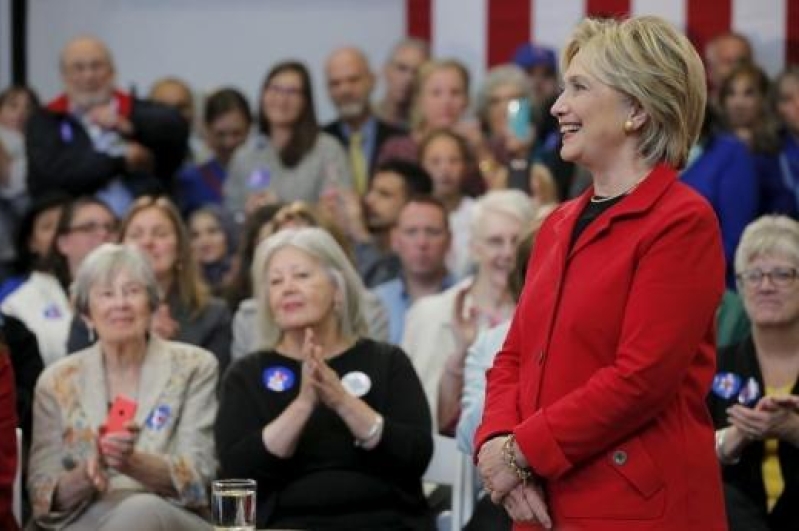
Democratic presidential candidate Hillary Clinton on Tuesday referenced the killing of Christians, Iraqi Yazidis and other religious minorities in the Middle East as "genocide." She previously had been reluctant to use that term regarding Islamic State violence. However, it is impossible to ignore that Islamic State has targeted and killed a significant number of members of the Yazidi religion, one of the oldest in Iraq, along with Christians and other religious minorities in the region it controls in the Middle East, reports Channel NewsAsia.
On Tuesday during a town hall at Berlin High School in New Hampshire, when Clinton was asked if she would join other religious and political leaders in using the genocide term, she said, "Yes, I will now (call it genocide). I will because we now have enough evidence," reports ABC News.
Clinton said she thought she was asked this same question a couple months ago. "I said, you know that term carries with it legal import. It is a very important concept and label for behavior that deserves that name. I said, 'We are only at the beginning at seeing this, and I am not sure yet we have enough evidence.'"
However, Clinton said enough evidence now points to "what is happening is genocide deliberately aimed at destroying lives and wiping out the existence of Christians and other religious minorities."
In July, Pope Francis used the term "genocide" to describe the killing of Christians in the Middle East, according to ABC News.
Officials within President Barack Obama's administration reportedly are weighing whether to designate Islamic State violence a genocide, and which religious minorities would be covered by such a designation, reports Channel NewsAsia. Earlier this month, the White House released a statement about the persecution of Christians in the Middle East, describing the "brutal atrocities committed against these communities by ISIL," but did not use the term genocide.
Earlier Tuesday, Florida Sen. Marco Rubio criticized President Obama for not using the term to describe ISIS' terror campaign. "I'm going to call it for what it is. It's a genocide," Rubio said at a rally in Iowa, reports Yahoo Politics.
However, Obama did call it "genocide" while laying out his plan to "degrade and ultimately destroy" ISIS last year.
"In a region that has known so much bloodshed, these terrorists are unique in their brutality," Obama said in September 2014. "They execute captured prisoners. They kill children. They enslave, rape, and force women into marriage. They threatened a religious minority with genocide."
Clinton made the genocide-related remark during what is believed to be her last campaign event before the New Year.







